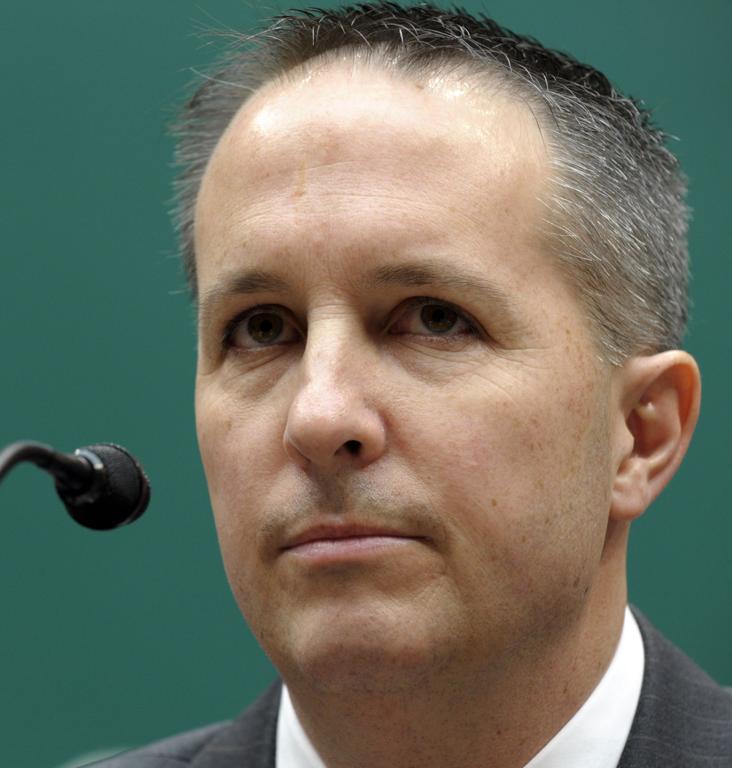
The central allegations in this case involve the New England Compounding Center in Framingham, and its nationwide recall of the compounded drug preservative-free methylprednisolone acetate in fall 2012.
The government alleges that certain vials of methylprednisolone acetate, among other drugs sold by NECC, became contaminated because NECC failed to follow industry standards for compounding sterile injectable drugs.
Hundreds of people were sickened in a meningitis outbreak, and more than 60 died. Do you know any of them? Have you heard about the case? Have you ever taken a compounded drug, or had meningitis?
So goes a list of questions lawyers want to ask to screen jurors beginning Wednesday in the trial of Barry J. Cadden, a former pharmacist and owner of NECC, who faces charges of racketeering and causing the deaths of at least 25 of the victims. While more than 60 people died, prosecutors believe they can prove to a jury that Cadden was directly responsible in 25 of those cases.
Cadden is the first person charged with causing the outbreaks and causing the deaths to go to trial, in a case that brought national scrutiny after one of the country’s worst pharmaceutical scandals. The deaths cited in the case span seven different states. Separately, NECC and several of its sister companies reached a $200 million civil settlement with victims and their family members.
To victims of the outbreak, the trial has been a long time coming.
“At some point they weren’t sure these people were going to be held accountable,’’ said Kim Dougherty, a Boston-based attorney with Janet, Jenner & Suggs LLC, who represented many of the victims in civil lawsuits.
“While a criminal trial won’t bring them back their loved ones, or address the suffering they’ve already gone through, I think the idea of someone being held criminally responsible for their actions will bring them some justice and peace of mind.’’
In 2014, federal prosecutors charged 14 people in relation to the outbreak with crimes including racketeering and fraud. Prosecutors allege they ran the compounding center like a criminal enterprise and purposefully skirted industry standards, well aware that their shoddy work could cause deaths. It was a mammoth, 73-page indictment, and was seen as the federal government’s response to the scandal.
Since that time, however, US District Judge Richard G. Stearns has splintered the case, ruling that the government has charged defendants with various, sometimes unrelated crimes, and he found that some of them were overcharged.
Two of the defendants — Carla Conigliaro, the majority owner; and her husband, Douglas Conigliaro — were charged only with financial crimes, for structuring tens of thousands of dollars in bank withdrawals after the outbreak to avoid federal detection. They pleaded guilty, and were sentenced in November to probation.
Stearns then split the remaining 12 defendants into two trials, scheduling the first trial for Cadden and pharmacy supervisor Glenn A. Chin, the only two people charged with causing deaths.
Then, Stearns agreed to dismiss cases against three of the remaining defendants, finding that, though they oversaw the packaging and distribution process, they could not be connected to the outbreak.
Another defendant, sales director Robert A. Ronzio of Rhode Island, has pleaded guilty to conspiring to defraud the Food and Drug Administration, and has agreed to cooperate with authorities. He will be sentenced in September.
Finally, in December, Stearns agreed to split the trial for Cadden and Chin, after lawyers suggested in court documents that Cadden at the trial would place the blame for the outbreak on Chin, who oversaw production and personnel. Chin’s trial will begin once Cadden’s has completed.
Dougherty said that victims would have preferred to see both defendants tried together, so that jurors could see the complete picture of their actions.
“It doesn’t give the jury the real sense of the way to evaluate the credibility of each one of them,’’ she said.
“From the victims’ perspective, these two were charged with the murders and should be tried together.’’
In recent court filings, Cadden’s lawyers have asked that his case — specifically the charges that he caused deaths — be dismissed, however, saying government prosecutors will fail to connect him to the fungal meningitis outbreak, and to any responsibility.
The trial could last two months, and prosecutors have identified close to 175 potential witnesses. Cadden faces more than 90 charges.
Milton J. Valencia can be reached at milton.valencia@globe.com. Follow him on Twitter @miltonvalencia.